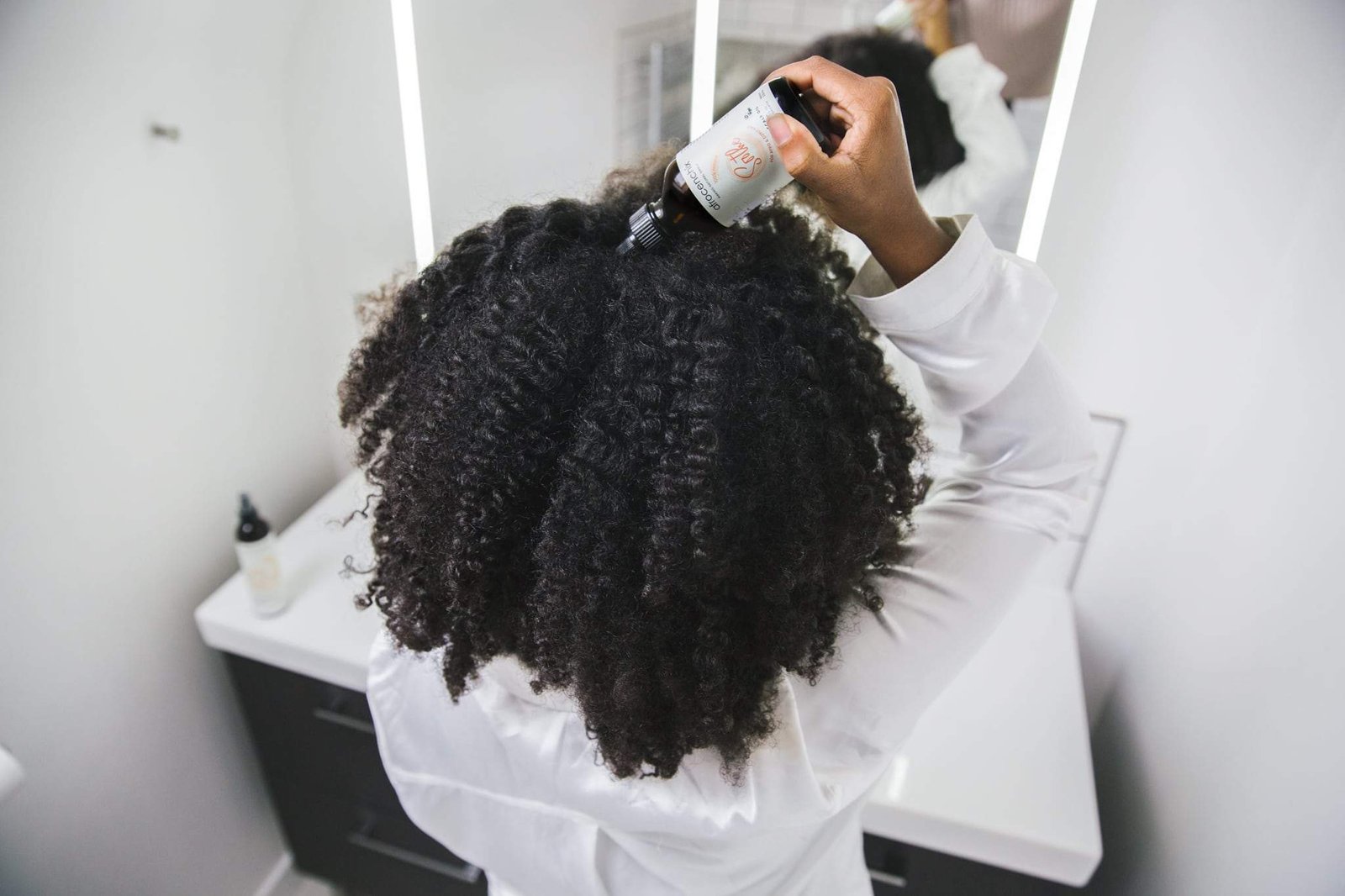
Taking care of your scalp is essential for maintaining healthy hair, and this is especially true for African Americans. With unique hair textures and specific needs, finding the right oiling routine can make all the difference. In this article, we will explore the various factors that come into play when determining how often African Americans should oil their scalp. From hair type and moisture levels to environmental factors, we’ll provide you with useful insights to help you keep your scalp nourished and your hair looking its best. So, let’s dive into the world of scalp oiling for African Americans and uncover the secrets to a vibrant and well-nourished mane.
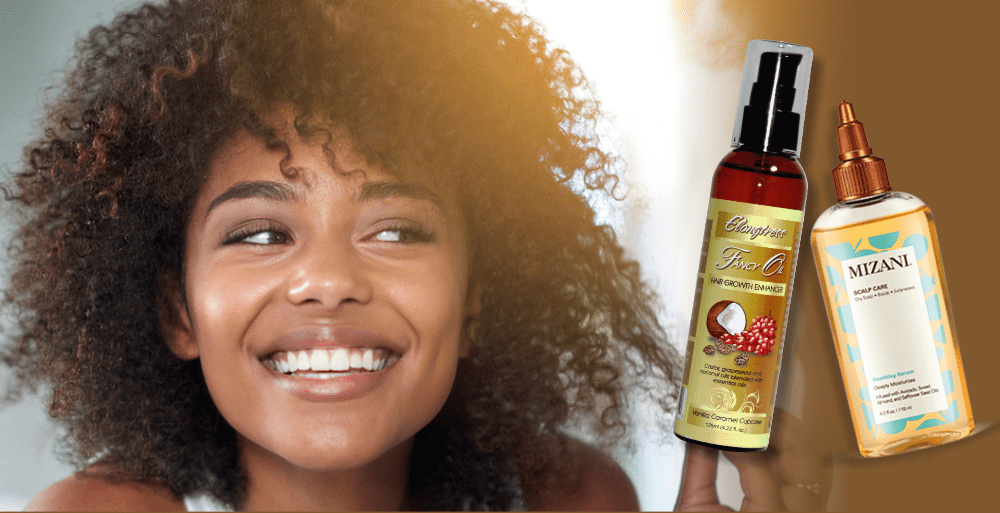
Understanding African American Hair Type
African American hair type is unique and requires specific care to maintain its health and vitality. The texture and structure of African American hair are different from other hair types, which is why it is essential to identify its unique properties. By understanding these properties, you can develop a hair care routine that caters to the needs of your hair.
Identifying Unique Properties of African American Hair
African American hair tends to be more prone to dryness and breakage. It has a tight curl pattern and is often characterized by its density. Due to the shape of the hair follicles, natural oils produced by the scalp struggle to reach the lengths of the hair. This leads to a lack of moisture in the hair, making it more susceptible to damage.
Additionally, African American hair can be categorized into different hair types, ranging from type 3 to type 4. Type 3 hair is generally looser curls, while type 4 hair consists of tightly coiled or kinky curls. Understanding your specific hair type is crucial in determining the best hair care practices, including the use of oils.
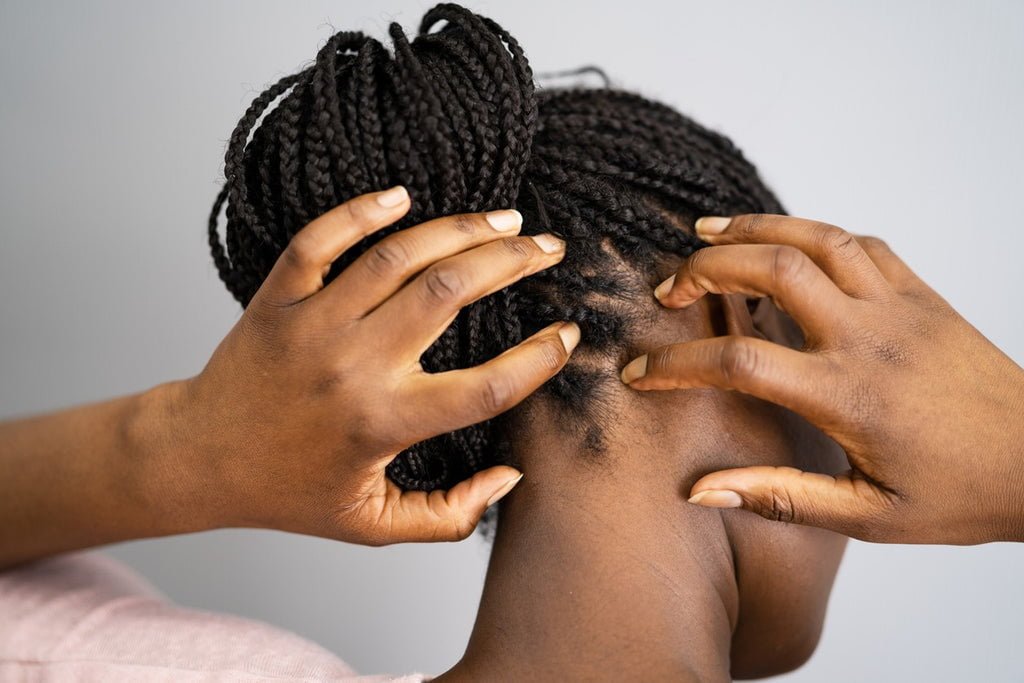
Understanding the Role of Oil in Maintaining Healthy Hair
The use of oil in maintaining healthy hair is of utmost importance for individuals with African American hair. Oil serves several functions that contribute to the overall health and appearance of your hair.
Nourishing the Scalp
One of the primary functions of oil is to nourish the scalp. Since African American hair tends to be dry, massaging oil into the scalp helps moisturize and provide nourishment to the hair follicles. This nourishment promotes healthy hair growth and prevents dryness and itchiness often associated with a dry scalp.
Promoting Hair Growth
Applying oil to the scalp can stimulate hair growth by improving blood circulation. Increased blood flow to the hair follicles ensures that essential nutrients and oxygen reach the hair roots, promoting healthy growth and reducing hair loss.
Providing a Barrier Against Environmental Damage
Oil acts as a protective shield, acting as a barrier against environmental damage. It helps seal moisture into the hair shaft, preventing it from drying out due to exposure to harsh weather conditions or pollutants. This protection minimizes breakage and helps maintain the overall health and strength of your hair.
Different Types of Scalp Oils
When it comes to choosing the right oil for your hair, you have several options to consider. Natural oils, such as coconut, olive, and castor oil, have gained popularity for their beneficial properties. These oils are known for their moisturizing and nourishing benefits, making them ideal choices for African American hair.
On the other hand, synthetic oils have also made their way into the hair care market. These oils are often formulated to mimic the properties of natural oils, providing similar benefits. It is essential to consider the specific effects of synthetic oils on your hair and scalp, as some may have additives that can irritate or cause adverse effects.
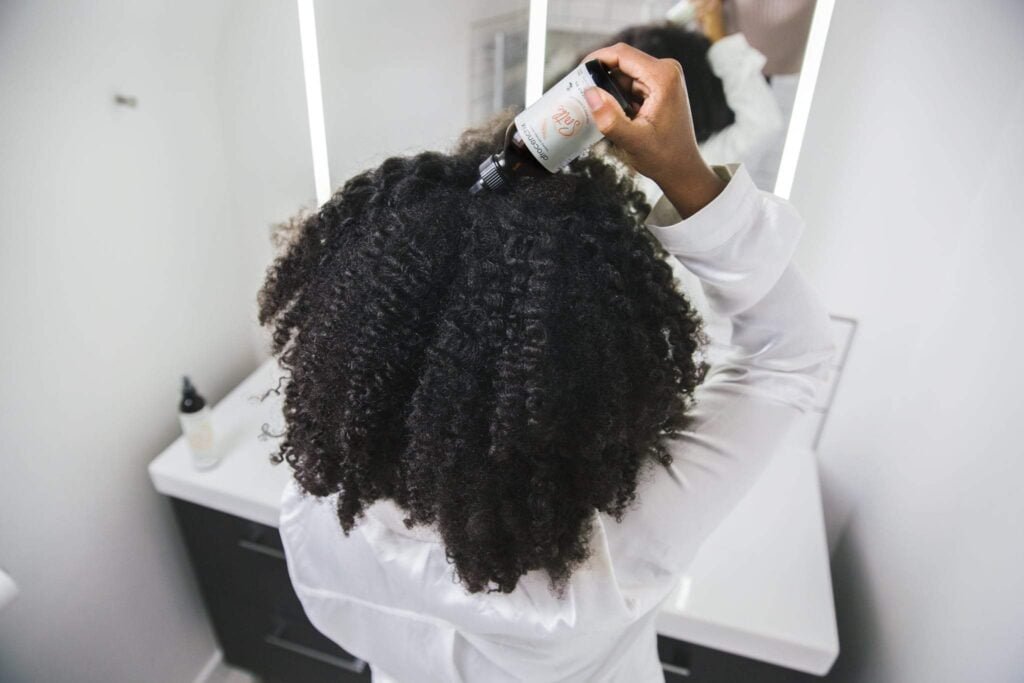
Choosing the Right Type of Oil for Your Hair
Choosing the right type of oil for your hair depends on various factors, including your hair type, porosity, and personal preferences. Natural oils like coconut, olive, and castor oil can be suitable for most African American hair types and provide excellent moisturizing properties. However, experimenting and finding the oil that works best for you may require some trial and error.
Consider consulting with a hair care professional or doing research to understand the specific benefits and drawbacks of different oils. Keep in mind that what works for one person may not work for another, so it’s essential to choose an oil that complements your hair’s unique needs.
Determining Hair Porosity
Hair porosity refers to your hair’s ability to absorb and retain moisture. Understanding your hair’s porosity is crucial in choosing the right oils and determining how frequently you should oil your scalp.
What is Hair Porosity and Why It Matters
Hair porosity is influenced by the hair’s structure, as well as the condition of the cuticle layer. High porosity hair has cuticles that are lifted or damaged, making it prone to moisture loss. Low porosity hair, on the other hand, has a tightly closed cuticle layer, making it more challenging for moisture to penetrate.
Understanding your hair’s porosity can help you determine the best way to moisturize and nourish your hair effectively. It allows you to tailor your hair care routine to meet your specific hair’s needs, promoting overall hair health and reducing the risk of damage.
How to Assess Your Hair’s Porosity
Assessing your hair’s porosity is relatively simple and can be done using the “porosity test.” Take a strand of clean, dry hair and place it in a glass of water. Observe how the hair behaves in the water. High porosity hair will float and absorb water quickly, while low porosity hair will float for a longer time before eventually sinking.
Another way to determine porosity is by running your fingers along a strand of hair. If you encounter roughness or bumps, it indicates high porosity, while smoothness suggests low porosity. These methods can help you understand your hair’s porosity and make informed decisions about the type of oils and frequency of oiling.
Choosing Oils Based on Your Hair’s Porosity
Once you have determined your hair’s porosity, you can select oils that are most beneficial for your specific hair type. For high porosity hair, oils with thick consistencies, such as castor oil, can help seal moisture into the hair shaft. Low porosity hair, on the other hand, may benefit from lighter oils like coconut or grapeseed oil, which are easily absorbed by the hair.
Experimenting with different oils and observing how your hair responds can help you identify the most suitable options for your hair’s porosity. Remember to start with small amounts and gradually increase as needed, as excessive oil can lead to a greasy appearance and weigh the hair down.
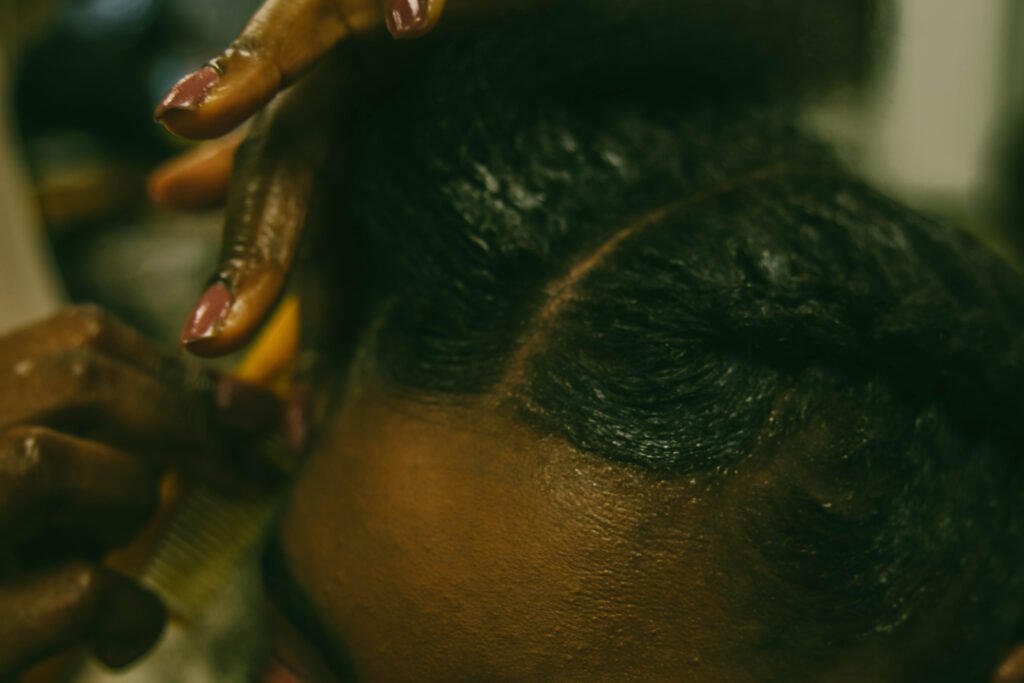
Impact of External Factors on Hair Oil Schedule
The frequency of oiling your scalp may be influenced by several external factors. Understanding and adapting to these factors can help you maintain healthy hair and a balanced oiling routine.
Climate and Weather Conditions
The climate and weather conditions in your area can significantly impact the frequency of oiling your scalp. In dry or arid climates, where moisture loss is higher, you may need to oil your scalp more frequently to combat dryness. Conversely, in humid climates, excessive oiling may lead to a greasy feeling, and less frequent applications may be necessary.
Exposure to Harsh Environmental Factors
Exposure to harsh environmental factors such as pollution, UV rays, and excessive heat can strip the hair of its natural oils and cause damage. If you live in an area with high pollution levels or frequently expose your hair to heat from styling tools, consider incorporating oiling into your routine more frequently to provide an additional layer of protection.
Influence of Chemical Treatments and Styling
Chemical treatments, such as relaxers or coloring, can alter the hair’s structure and increase its susceptibility to damage. If you regularly undergo chemical treatments or engage in heat styling, you may need to oil your scalp more frequently to replenish the moisture lost during these processes. Be sure to consult with a professional stylist to determine the best oiling frequency for your specific situation.
Effect of Over-Oiling the Scalp
While oiling is beneficial for your hair, it is essential to strike a balance and avoid over-oiling. Over-oiling the scalp can lead to a range of problems and should be avoided to maintain healthy hair.
Signs of Over-Oiling
Signs of over-oiling the scalp include a greasy or weighed-down appearance, an unpleasant odor, and an increase in scalp sebum production. Additionally, over-oiling can clog hair follicles, leading to scalp inflammation, itchiness, and even hair loss in extreme cases.
Dangers of Oil Buildup on the Scalp
Oil buildup on the scalp can disrupt the hair’s natural balance, leading to an unhealthy environment for hair growth. It can block hair follicles, impede proper oxygen and nutrient exchange, and contribute to scalp issues such as dandruff or fungal infections.
Balancing Oil Application
To avoid over-oiling, it is essential to find a balance in your oil application routine. Start with small amounts of oil and gradually increase if needed. Pay attention to how your hair and scalp respond to the oil, adjusting the frequency of oiling accordingly. Remember that everyone’s hair is different, so what works for others may not work for you. Trust your instincts and listen to your hair’s needs.
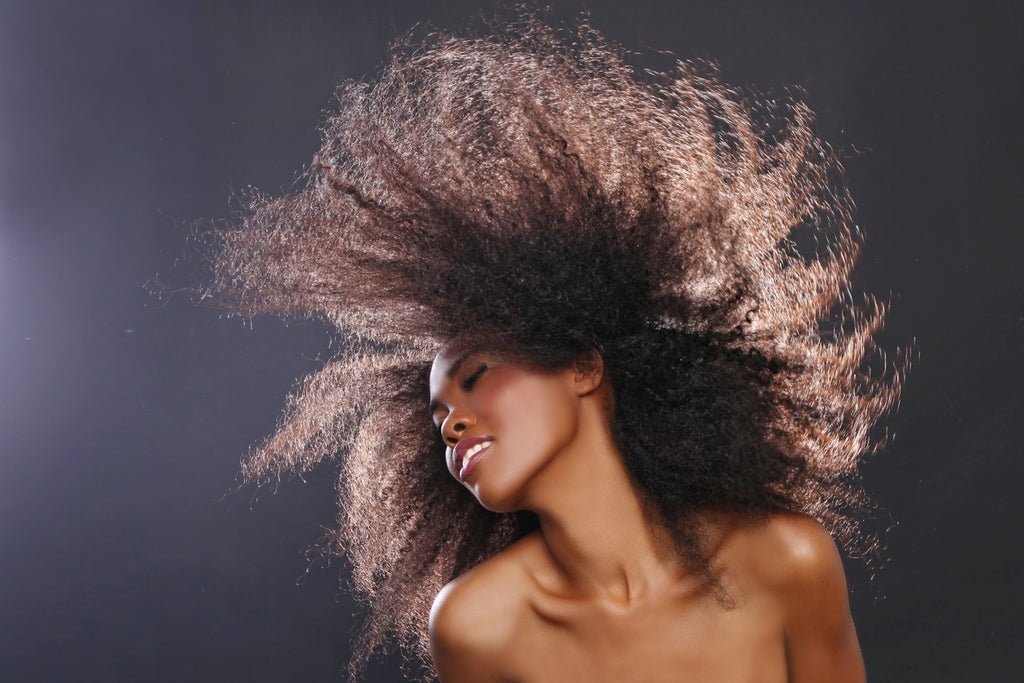
Frequency of Oiling for African American Hair
Determining the optimal frequency of oiling for African American hair can be a personal journey. However, there are some general guidelines you can follow to help you establish a routine that works for you.
General Guidelines for Oiling Frequency
As a general rule, oiling your scalp once or twice a week is a good starting point for most individuals with African American hair. This frequency allows for adequate moisture while avoiding excessive buildup. However, it is essential to remember that these guidelines may vary depending on your hair’s specific needs and the factors discussed earlier, such as climate and porosity.
Varying Oiling Routine According to Individual Needs
It is crucial to understand that your hair’s needs may change over time. External factors, hormonal changes, and seasonal variations can all impact your hair’s condition and oiling requirements. Be open to adjusting your oiling routine as needed, and listen to your hair’s cues to ensure it remains healthy and well-nourished.
Best Practices for Applying Scalp Oil
Applying scalp oil properly can make a significant difference in its effectiveness. Follow these best practices to ensure the oil is evenly distributed and provides maximum benefits to your hair and scalp.
Proper Techniques for Applying Oil to the Scalp
When applying oil to your scalp, use your fingertips to gently massage the oil in a circular motion. This massage helps stimulate blood circulation, ensuring the oil penetrates the scalp and reaches the hair follicles. Avoid using your nails or applying excessive pressure, as this can cause scalp irritation.
The Importance of Scalp Massage During Oil Application
Incorporating a scalp massage while applying oil has numerous benefits. It not only enhances relaxation but also promotes blood flow, allowing the oil’s nutrients to reach the hair roots. Additionally, scalp massage can help relieve tension and stress, which can impact hair health.
Remember to be gentle during the massage and take the time to thoroughly distribute the oil across your scalp. This step is essential for optimal results and helps distribute the oil evenly throughout your hair.
Choosing the Right Time for Oil Application
The time of day you choose to apply oil to your scalp can impact the effectiveness and comfort of the process. Consider the following factors when deciding on the best time for oil application.
Applying Oil Before Bed
Many individuals prefer to apply oil before bedtime. This allows the oil to work its magic overnight, providing deep nourishment and moisture to the hair and scalp. Additionally, applying oil before bed gives it ample time to be absorbed by the hair, reducing the chances of a greasy appearance during the day.
Applying Oil Before Washing Hair
Some people find it beneficial to apply oil to their scalp before shampooing their hair. This method helps protect the hair from the potentially drying effects of shampoo, keeping it moisturized and nourished throughout the wash process. Applying oil before washing can also help detangle and soften the hair, making it more manageable during the cleansing process.
Considerations for Oil Application During the Day
If you prefer to apply oil during the day, make sure to choose an oil that absorbs quickly and does not leave a greasy residue. Lighter oils like argan or jojoba oil can be suitable options for daytime use, as they provide moisture without weighing the hair down. Additionally, consider applying the oil sparingly to avoid an excessively shiny or oily appearance.
Maintaining a Hair Care Routine
While oiling your scalp plays a vital role in maintaining healthy hair, it is just one aspect of a comprehensive hair care routine. Follow these best practices to maintain a balanced and effective routine.
Balancing Oiling with Other Hair Care Practices
Remember that oiling is just one part of a complete hair care routine. It should be complemented by other practices such as regular shampooing, conditioning, and protecting the hair from heat and environmental damage. Each step in your hair care routine contributes to the overall health and appearance of your hair.
Incorporating Oiling into Your Weekly Hair Routine
Incorporate oiling into your weekly hair care routine based on your hair’s needs and the guidelines discussed earlier. Determine the frequency of oiling that works best for you, keeping in mind factors such as porosity, climate, and external influences. Consistency is key, so find a routine that you can stick to and make it a habit.
Adjusting Your Routine According to Hair Changes and Seasons
Be adaptable and open to adjusting your hair care routine based on the changes your hair may undergo. Factors like hormonal changes, seasonal variations, and even aging can impact your hair’s needs. Stay in tune with your hair’s condition and adjust the frequency and choice of oils accordingly. This flexibility ensures that your hair care routine remains effective and tailored to your hair’s unique requirements.
In conclusion, understanding African American hair type is crucial in developing a hair care routine that caters to its specific needs. Incorporating scalp oil into your routine can provide numerous benefits, including nourishing the scalp, promoting hair growth, and protecting against environmental damage. By identifying your hair’s porosity and considering external factors, you can determine the right oiling frequency and choose oils that best suit your hair. Remember to practice proper oil application techniques, choose the right time for oil application, and maintain a comprehensive hair care routine that includes other essential practices. With these guidelines, you can keep your African American hair healthy, vibrant, and beautiful.











